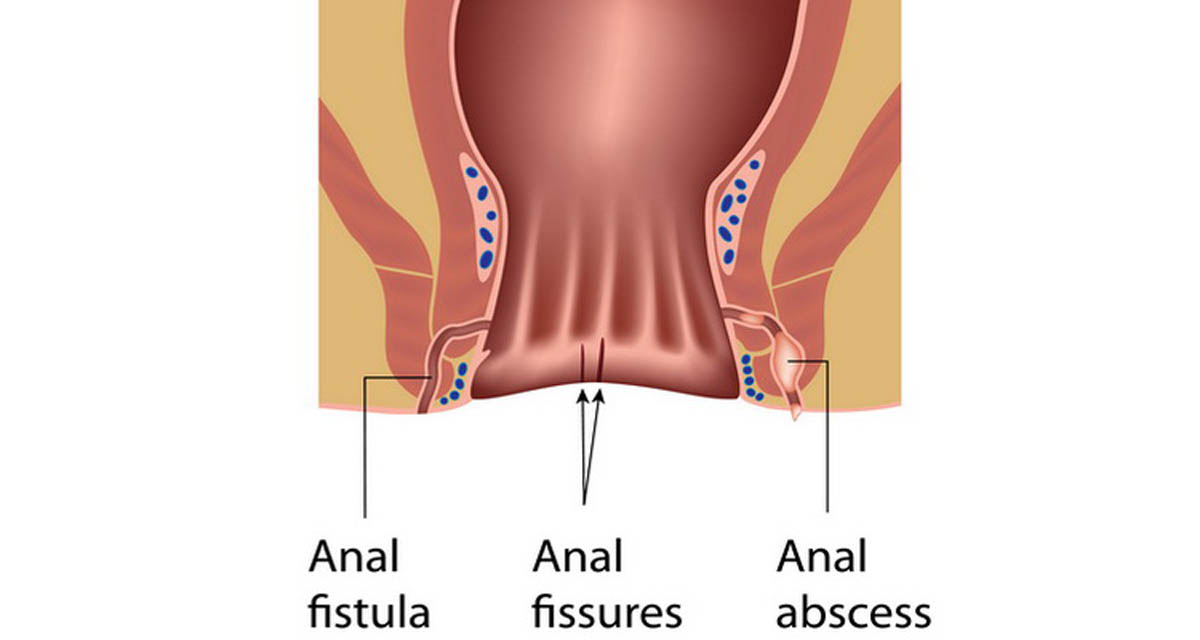Table of Contents
If the fissure is not responding to treatment, the physician should re-examine the patient. There are conditions, such as muscle spasm or scarring, which could interfere with the healing process. Anal fissures that do not heal can be corrected with surgery. It is a minor operation, usually done on an outpatient basis where the surgeon removes the fissure and any underlying scar tissue. Cutting a small portion of the anal muscle prevents potential spasms. This will also help the area to heal, and rarely interferes with the control of bowel movements.

Recovery of anal fissures
Complete healing takes place in a few weeks although the pain often disappears after a few days. Over 90% of the patients who need surgery for fissures have no further problems. Patients can help avoid the return of fissures by drinking at least eight glasses of water a day. They could also help their recovery process by maintaining adequate fiber in the diet. This prevents constipation, which is the cause of most anal fissures.
If the problem returns without an obvious cause, the person may need further assessment. This may include anal manometry testing or an exam under anesthesia. Many patients with anal fissures are afraid that anal fissures could lead to colon cancer. This is not true, and such fears are unsubstantiated. However, it is important to evaluate persistent symptoms carefully, since conditions other than fissures can cause similar symptoms. Once your doctor is sure you just have an anal fissure, you should not be afraid of the possibility of colon cancer. Just focus on your recovery process and healing this fissure.
How common are anal fissures?
Anal fissures may have an unrepresentatively high hit rate, but maybe not considering the very significant shelf space at drug stores devoted to hemorrhoid treatments, laxatives, and stool softeners. There is obviously a big demand for these products, although several doctors said that anal fissures as well as hemorrhoids are very common.
How to prevent them?
Preventing anal fissures is often a matter of addressing the factors that contribute to their development, with a focus on maintaining soft stools and minimizing stress on the anal canal.
Eating a diet rich in fiber is key to this. By including ample fruits, vegetables, whole grains, and legumes in your meals, you can ensure that your stools remain soft and regular. It's also essential to stay well-hydrated by drinking plenty of water throughout the day. Some people might need to be cautious about the consumption of spicy foods, caffeine, or dairy, as these can sometimes irritate the digestive system and lead to constipation or diarrhea, which can increase the risk of fissures.
Good bowel habits go a long way in preventing anal fissures. It's important to respond to the body's natural urges for bowel movements and not to delay them. Delay can lead to harder stools and increase the likelihood of straining, which should be avoided. When cleaning after a bowel movement, it's gentler on your body to use soft, unscented toilet paper or pre-moistened wipes.
Regular physical activity is another important component of preventing fissures as it can help regulate bowel movements. If constipation is an issue, a healthcare provider might suggest the occasional use of laxatives or stool softeners, but these should be used under medical guidance.
In some situations, such as after childbirth, special care may be needed to manage bowel movements to reduce the risk of developing fissures. Improving toilet ergonomics can also help; for instance, using a footstool can create a squat-like position which can facilitate easier bowel movements.
When needed, topical treatments might be recommended by a doctor to help relax the anal sphincter. This is especially useful for those who frequently develop fissures. It's also vital to address any underlying conditions that might be contributing to bowel issues, like inflammatory bowel disease.

